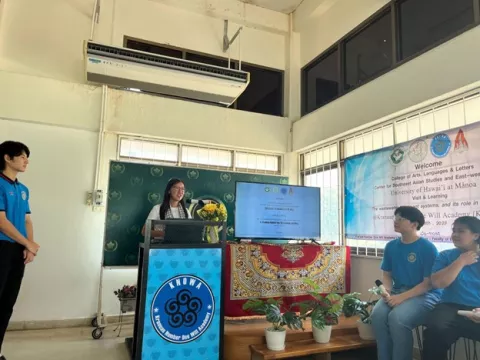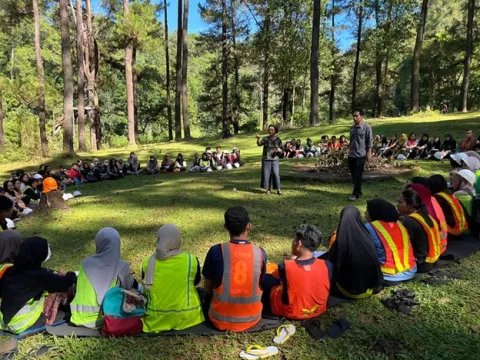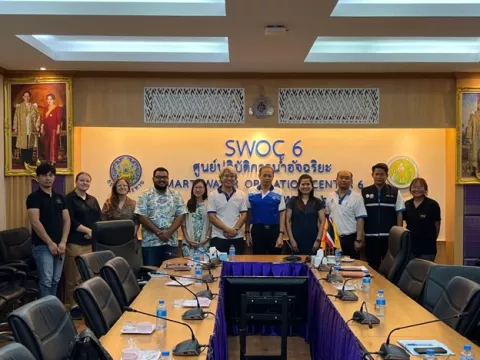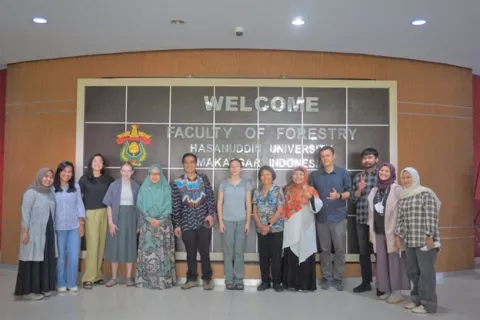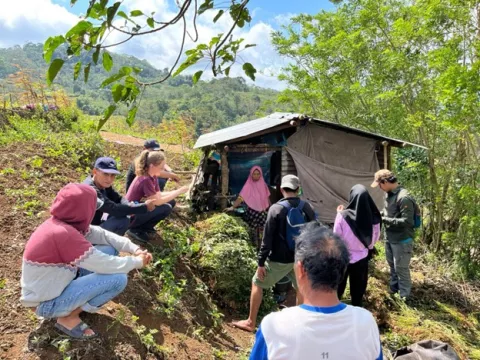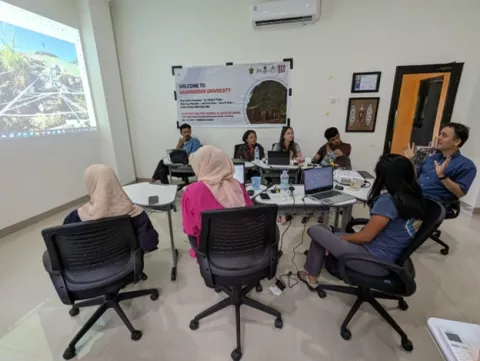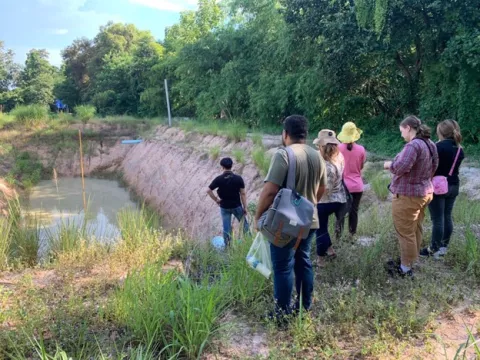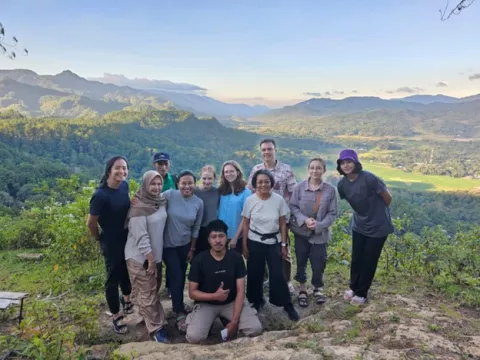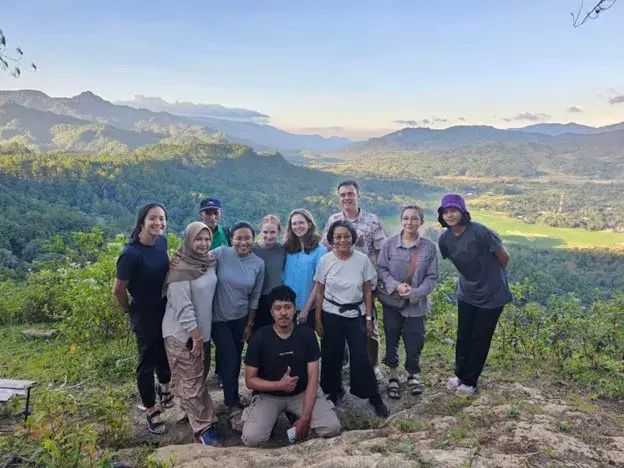
Enhancing research and training collaboration with Southeast Asia partners through Geography and Environment field school, June-July 2023
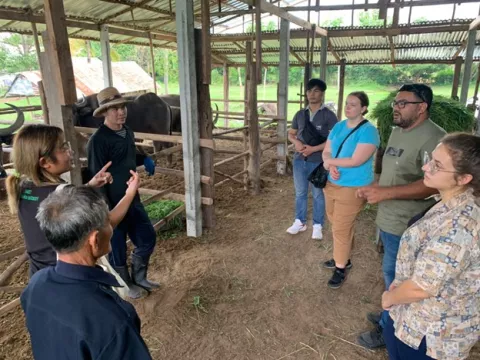
The Collaborative Southeast Asia field school is an integral part of a five-year grant funded by the Luce Foundation on LuceSEA Transitions: Environment, Society, and Change. The program studies socioeconomic and environmental shifts in Southeast Asian rural societies.
The LuceSEA grant is committed to educate the next generation of scholars working in Southeast Asia, and engage young scholars and students of our partner institutions. We carried out some elements of research activities in a joint Southeast Asia-based field school that provides East-West Center and University of Hawai‘i Mānoa students field experience in social science research while building a foundation for a cross-regional research network. The field school offers a unique opportunity to work across disciplines and cultures in studying socio-environmental changes in Southeast Asia.
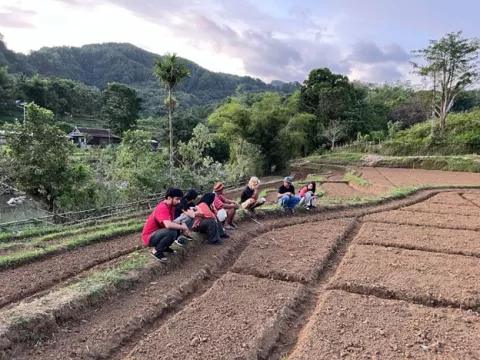
The topic: Diversification of household economies throughout Southeast Asia has created places where individuals and households shift between agricultural, industrial, and service economies, resulting in dynamic migration patterns between rural and urban areas (and beyond). In many instances, the role of land, its uses, and meanings have undergone significant change. While access to land remains important, accumulation strategies pursued by smallholder households are diverse and contingent on varied socio ecological conditions. We also see a new generation of farmers who negotiate change between locally rooted cultural practices and changing market forces and technologies that rely on new networks and knowledge that transform how smallholder farming is practiced.
Joint Field Research Exercise
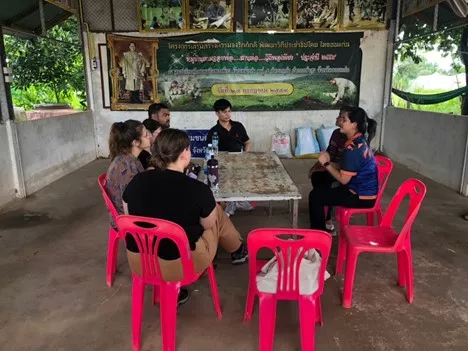
UHM students partnered with students of universities in Southeast Asia for a two-week 2023 cross-cultural fieldwork experience in rural Southeast Asia. Students experienced the value of working in diverse teams as they learn of each other’s approaches to field-based and experiential learning. Our partners in Southeast Asia are Khon Kaen University (KKU) in Khon Kaen, Thailand and Universitas Hasanuddin (UNHAS) in Makassar, Indonesia. The student teams conducted field work to complement ongoing work on agrarian transition by researchers at KKU and UNHAS. Some activities included:
- Documenting landscape changes and plot them on a geographic database such as ArcGIS StoryMaps
- Using of qualitative research methods to collect information on constraints and opportunities that smallholders face in engaging with commodity production and agriculture
- Collecting background information on important technological innovations or non-traditional commodities identified by Southeast Asia researchers (e.g. cassava, vegetables, poultry, cashew nuts, shallots, resin tree, etc.) that are reshaping agrarian transitions.
Workshop on Collaborative Research and Learning
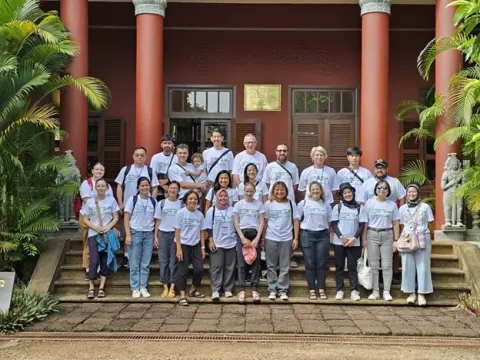
At the end of the field research exercise, all the research teams and their mentors convened in Siem Reap, Cambodia, and presented the findings at an international workshop. Findings from this short research exercise are situated in the ongoing research that KKU and UNHAS researchers have been conducting. After the presentations by student teams and researchers from KKU and UNHAS, the workshop discussed insights gained from working across disciplines and cultures. Some questions that the workshop addressed:
- What are the opportunities and challenges associated with international collaborative research?
- How can we promote and enable Collaborative Research and Training in Southeast Asia?
- What steps should we take to build on this collaborative field research experience?
Enhancing research and training collaboration with Southeast Asia partners through Geography and Environment field school, June-July 2023

The Collaborative Southeast Asia field school is an integral part of a five-year grant funded by the Luce Foundation on LuceSEA Transitions: Environment, Society, and Change. The program studies socioeconomic and environmental shifts in Southeast Asian rural societies.
The LuceSEA grant is committed to educate the next generation of scholars working in Southeast Asia, and engage young scholars and students of our partner institutions. We carried out some elements of research activities in a joint Southeast Asia-based field school that provides East-West Center and University of Hawai‘i Mānoa students field experience in social science research while building a foundation for a cross-regional research network. The field school offers a unique opportunity to work across disciplines and cultures in studying socio-environmental changes in Southeast Asia.

The topic: Diversification of household economies throughout Southeast Asia has created places where individuals and households shift between agricultural, industrial, and service economies, resulting in dynamic migration patterns between rural and urban areas (and beyond). In many instances, the role of land, its uses, and meanings have undergone significant change. While access to land remains important, accumulation strategies pursued by smallholder households are diverse and contingent on varied socio ecological conditions. We also see a new generation of farmers who negotiate change between locally rooted cultural practices and changing market forces and technologies that rely on new networks and knowledge that transform how smallholder farming is practiced.
Joint Field Research Exercise

UHM students partnered with students of universities in Southeast Asia for a two-week 2023 cross-cultural fieldwork experience in rural Southeast Asia. Students experienced the value of working in diverse teams as they learn of each other’s approaches to field-based and experiential learning. Our partners in Southeast Asia are Khon Kaen University (KKU) in Khon Kaen, Thailand and Universitas Hasanuddin (UNHAS) in Makassar, Indonesia. The student teams conducted field work to complement ongoing work on agrarian transition by researchers at KKU and UNHAS. Some activities included:
- Documenting landscape changes and plot them on a geographic database such as ArcGIS StoryMaps
- Using of qualitative research methods to collect information on constraints and opportunities that smallholders face in engaging with commodity production and agriculture
- Collecting background information on important technological innovations or non-traditional commodities identified by Southeast Asia researchers (e.g. cassava, vegetables, poultry, cashew nuts, shallots, resin tree, etc.) that are reshaping agrarian transitions.
Workshop on Collaborative Research and Learning

At the end of the field research exercise, all the research teams and their mentors convened in Siem Reap, Cambodia, and presented the findings at an international workshop. Findings from this short research exercise are situated in the ongoing research that KKU and UNHAS researchers have been conducting. After the presentations by student teams and researchers from KKU and UNHAS, the workshop discussed insights gained from working across disciplines and cultures. Some questions that the workshop addressed:
- What are the opportunities and challenges associated with international collaborative research?
- How can we promote and enable Collaborative Research and Training in Southeast Asia?
- What steps should we take to build on this collaborative field research experience?


